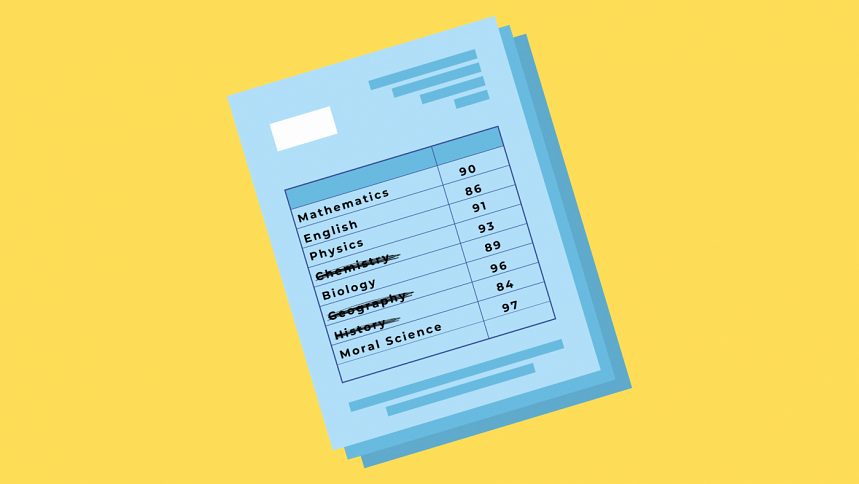The failures of subject mapping and how they impact national curriculum students

Before my Senior School Certificate (SSC) results were published, I received a call from a fellow examinee who was stressed beyond measure. His dismay, however, wasn't born from a failure to do well in the exams he sat for a few months ago. Instead, he was afraid that he would fail to secure GPA 5 because his performance in the previous board examination, namely JSC, wasn't up to par.
In an ideal world, my friend's concern would be laughable at best, because our grades from three odd years ago shouldn't matter for one of our most pivotal exams in the first place. Unfortunately, since the COVID-19 pandemic began, this has been a serious cause of anxiety for thousands of board exam candidates across the country.
This alternative method of evaluation based on previous board exams' results is commonly referred to as subject mapping. It essentially utilises the marks students received in their previous board exams in the event that their SSC or HSC exams are cancelled or condensed into fewer subjects. All of the board exams since 2020 have used subject mapping to varying degrees to evaluate thousands of examinees.
Since the HSC 2020 exams were scrapped completely to comply with COVID-19 health protocols, evaluation was done based on the combined marks that examinees achieved in their JSC and SSC examinations. The decision was somewhat justified, albeit unfair to many.
Rashid Hasan, an HSC 2020 candidate from Ideal School and College, was left high and dry when the government decided to cancel the exams and opt for alternative evaluation. "My GPA in the SSC examination was unsatisfactory. Although I regrouped for HSC and had confidence in my preparation, it wasn't of any use since the results were based on my previous scores. This negatively impacted my university admission process to a large extent. Although I understand why the education ministry chose this method of evaluation, there is no doubt that it was unfair to hundreds like myself," he said.
While this was the only reasonable option during HSC '20, subject mapping unfairly tipped the scale during the board exams of 2021 and 2022, because even though the exams weren't held on certain subjects like Bangladesh and Global Studies, Religion, Information and Communications Technology (ICT), etc., they were still evaluated based on the marks students received in their previous board exams. As a result, someone who did well on all of the subjects in SSC, for example, still ended up getting unsatisfactory results due to their performance in eighth grade.
This poses a serious question of why these subjects are being evaluated at all if the students aren't appearing for the exams. Not only does this possess no inherent advantage, but rather, it reduces students' overall GPA disproportionately.
According to Farhan Hasnat, an SSC 2021 candidate from St. Joseph Higher Secondary School, he missed a GPA 5 only because he failed to secure over 80 marks in certain subjects during his JSC exams.
"I got an A in both Bangla and Religion during JSC. As a result, even though I got A+ in all of the subjects I sat for SSC, my GPA got watered down to 4.86. Since my GPA fell short, I couldn't apply to the colleges I previously wanted to," he shares.
Like Rashid and Farhan, there are countless students who might not have done well in their earlier board exams for a plethora of personal reasons. But why should that bar them from achieving a better result in their later years if they wholeheartedly worked to improve themselves? Why should factors that students don't have a hand in negatively impact their future?
While the answer remains to be seen, there is no doubt that students must continue to pay the price for the failures of our national curriculum.
Ayaan loves to read dinosaur comics and poorly-written manga. Recommend your least favourite reads at [email protected]

 For all latest news, follow The Daily Star's Google News channel.
For all latest news, follow The Daily Star's Google News channel. 








Comments